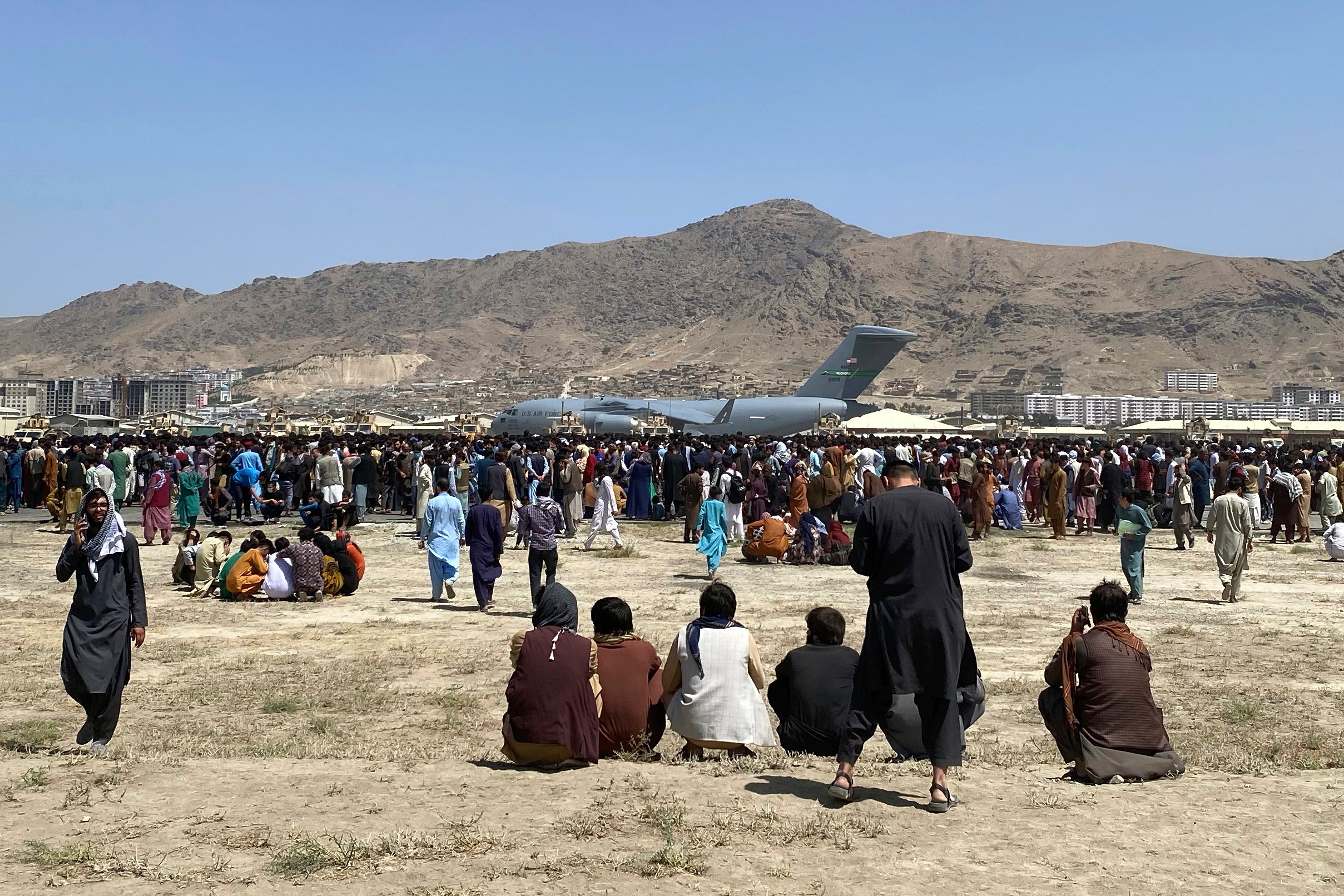What are military families like mine supposed to think now we’ve handed Afghanistan back to the Taliban?
My dad gave so much in Iraq. His fellow service members then gave everything in Afghanistan. Today, we’re left with the feeling that none of it mattered

Your support helps us to tell the story
From reproductive rights to climate change to Big Tech, The Independent is on the ground when the story is developing. Whether it's investigating the financials of Elon Musk's pro-Trump PAC or producing our latest documentary, 'The A Word', which shines a light on the American women fighting for reproductive rights, we know how important it is to parse out the facts from the messaging.
At such a critical moment in US history, we need reporters on the ground. Your donation allows us to keep sending journalists to speak to both sides of the story.
The Independent is trusted by Americans across the entire political spectrum. And unlike many other quality news outlets, we choose not to lock Americans out of our reporting and analysis with paywalls. We believe quality journalism should be available to everyone, paid for by those who can afford it.
Your support makes all the difference.My Marine father was deployed to Iraq not long after 9/11, when I was 13 years old. When he returned, he drank more. He’d always been a heavy drinker, but this uptake in consumption was distinctly noticeable. After age 14, I don’t have a memory of my father without a beer in his hand.
Of course, he never told us anything specific. He had his stories he’d tell family and friends, the ends edited into a punchline. His favorite was when he went outside for a cigarette and the building he had just been in was shelled. He ends each retelling by saying, “Smoking cigarettes saved my life.”
Everyone chuckles at the irony and the conversation moves on. He never comments on the rest of the Marine Aviation Logistics Squadron left inside. And no one ever asks.
But there were times in my adolescence, after Iraq, when my brother and I fought and my dad would roar, “What are you doing? You could be in Iraq right now like those young boys being blown up for no reason. You’re both so lucky and you can’t even appreciate it.”
The government study “Post-traumatic Stress Disorder Post Iraq and Afghanistan: Prevalence Among Military Subgroups” found most troops deployed to Iraq developed PTSD, with a higher prevalence among Marines.
With time and an administration change, troops were moved from Iraq to join others in Afghanistan, but the mission — and results — remained the same. My dad retired. He was tired. He was disabled from his service. The war in the Middle East continued. And then the hasty withdrawal from Afghanistan began.
Social media weighed in, naturally. One particular meme made by @drewhopkinth crossed my Instagram feed. It depicts Michael J. Fox as Marty McFly in Back to the Future, a Vietnam Veteran ballcap edited onto his head, gesturing to the photo of the helicopter taking off from atop a building in Afghanistan with a quotation reading, “Hey, I’ve seen this one before.” Below, Joe Biden and Kamala Harris, poorly edited onto the bodies of McFly’s past relations, reply, “What do you mean you’ve seen it? It’s brand new!”
It felt like a gut punch. Not because it was inaccurate, but because it took me back to the late 00’s. For years, I couldn’t watch or read any Vietnam-era media without breaking down — it was too similar to my family’s situation, too close for comfort. In 2009, I took a community college class in which we read the beautiful and heartbreaking book The Things They Carried by Tim O’Brien. In conjunction with the book, we watched the documentary Dear America: Letters Home from Vietnam in class. Michael J. Fox read a young man’s letter in the documentary.
The rest of the class seemed mildly interested, maybe even a little bored. But I sat in the back crying, wondering if I should leave yet glued to the screen. These soldiers were so young, writing home about pain but with hope. Often, text would roll across the screen after the reading of a letter saying the writer had died a week or so later in combat.
A few months later, I would tell my dad about the documentary and the rest of the students only vaguely paying attention. I mentioned that I wasn’t okay, that I felt guilt and shame. For a moment, he considered what I had told him before replying, “Good.”
I can’t imagine what watching the chaotic pullout from Afghanistan was like for my dad. I am no military tactician nor diplomatic strategist, but I do know what it’s like to lose someone and feel it could have been prevented, that it didn’t have to happen. I know what it’s like to feel like you gave so much and none of it mattered.
Join our commenting forum
Join thought-provoking conversations, follow other Independent readers and see their replies
Comments